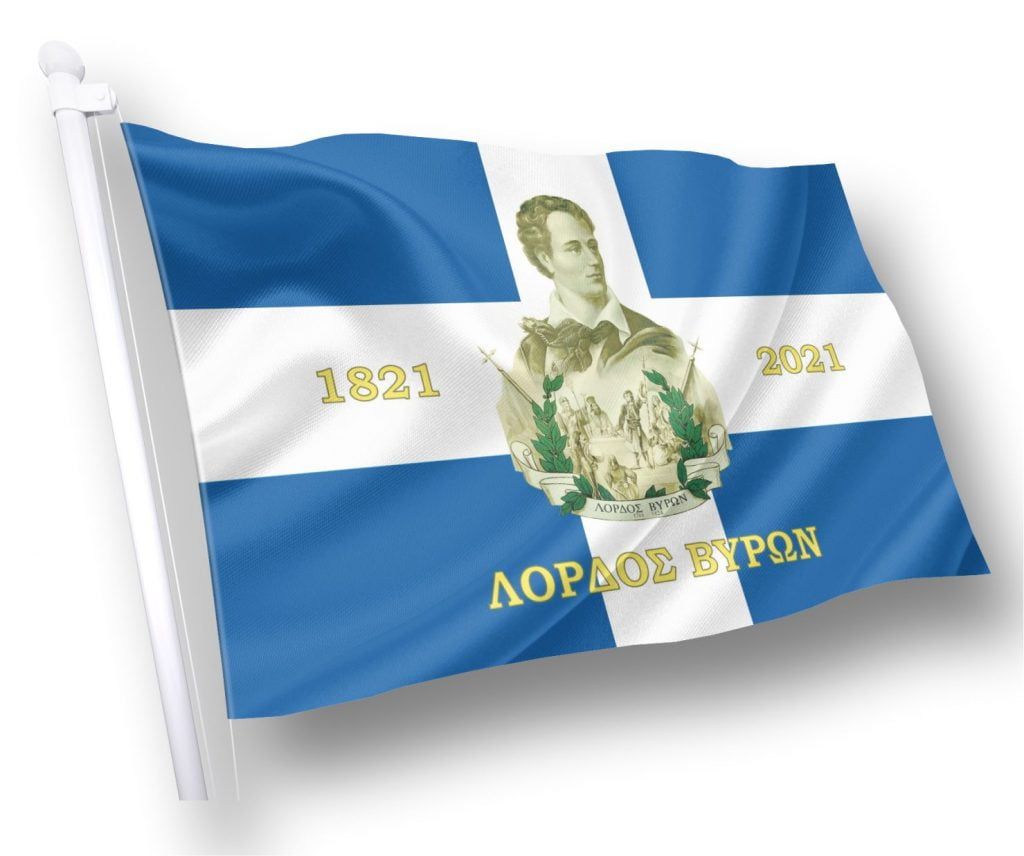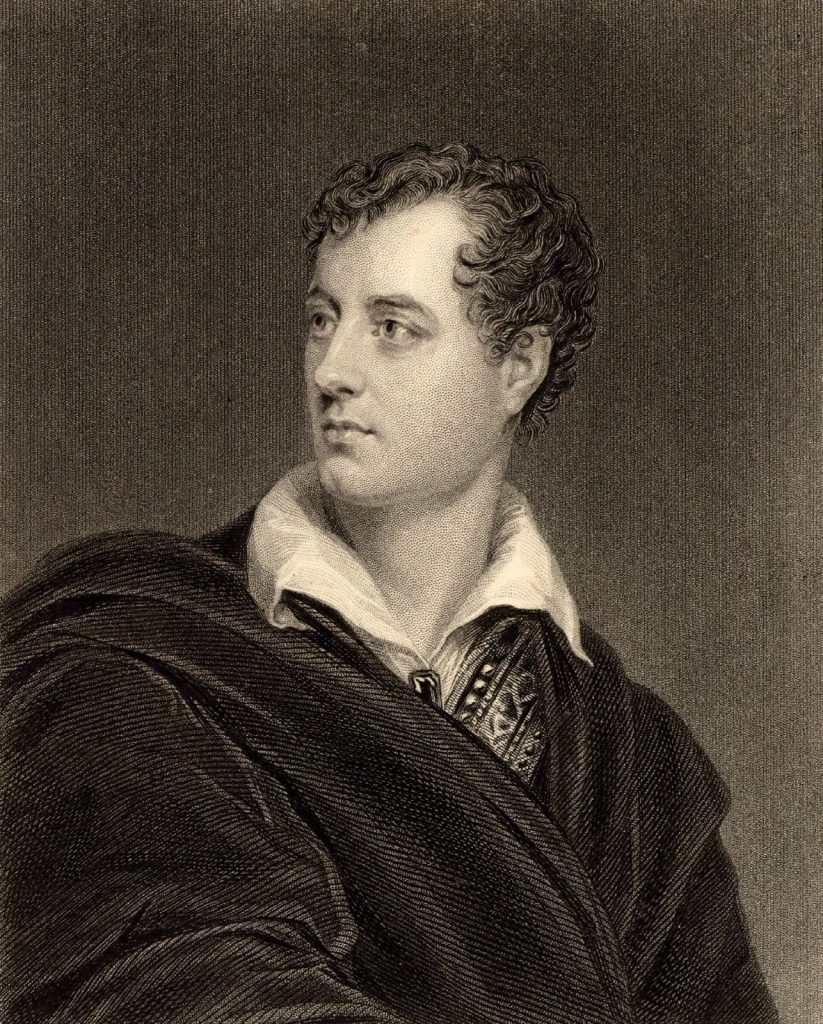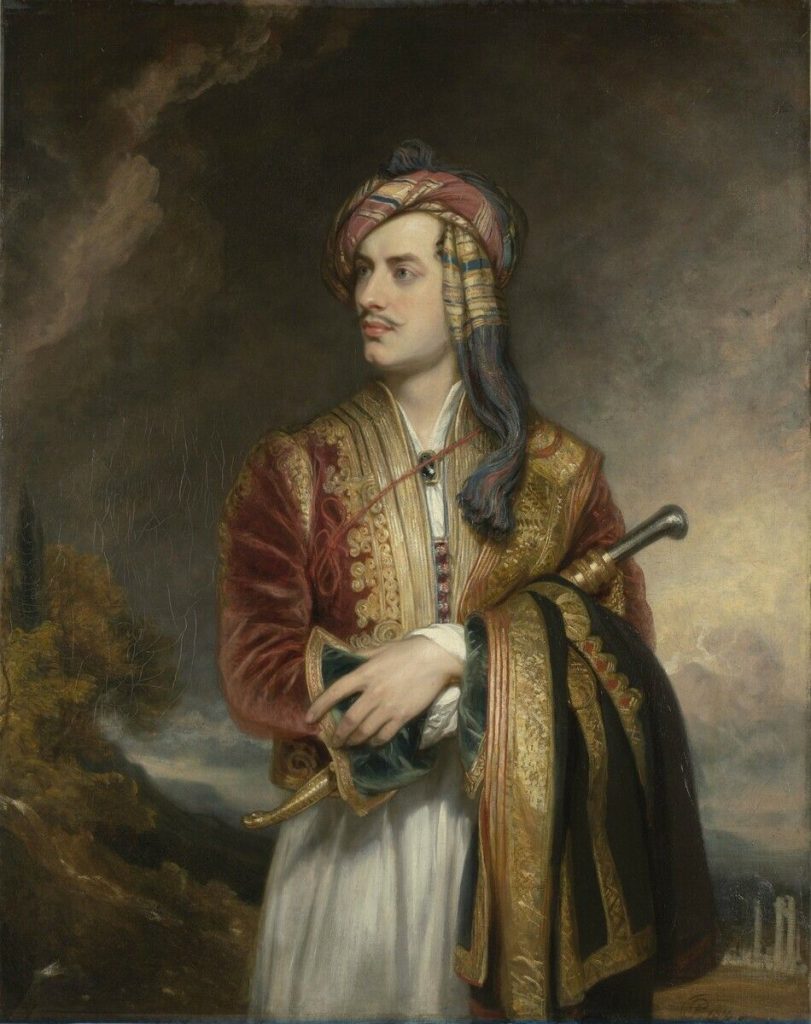By Stefanos Kavallierakis, a historian, professor at the National School of Public Administration and columnist at the newspaper ‘Ta Nea.’
Lord Byron, born George Gordon Byron, was one of the most significant poets of Romanticism in English literature. He was born on January 22, 1788, and died on April 19, 1824. This year marks exactly two centuries since his death, prompting us to revisit the journey and contribution of one of the most influential poets of the Romantic movement.
Byron became famous for his poetic ability and vivid personality. His works include the greatest epic of Romanticism, “Childe Harold’s Pilgrimage,” as well as poems such as “Don Juan.” The themes of his work often included wandering, passion, despair, and pain, clearly influenced by a difficult family situation, which, contrary to legend, was deeply problematic. Byron‘s life, full of travels and seemingly carefree, was filled with adventures such as many intense loves, swimming across the Hellespont, and flirting with suicide, hiding a desperation rather than the spoiled antics of British aristocracy.
Byron is associated with Greek Independence in a unique and special way and his name becomes almost synonymous with it. Strange for someone who arrives in Greece in 1823 and dies in an undignified manner in Messolonghi a year later.

In a strange way, Byron found in Greece a spark and a meaning of life. A year before 1822 he lived in Italy, a life that led him into an existential abyss. He had become an incoherent mixture of strength and weakness, sentimentality and ferocity, irresponsibility, and tragic gravity. He had become trapped in his poetic myth and his love of life had been replaced by a longing for death.
Late on the night of Friday, July 16, 1823, an English brig, the Hercules, sailed from the port of Genoa. A lord, who happened to be one of the most famous writers of his time, a Greek nobleman, an Italian count, a doctor, and a secretary were aboard, along with an insignificant sum of money. Byron might have thought he was embarking on a new Grand Tour like the one he had undertaken earlier in the Mediterranean between 1809-1811, and not that he would become involved in a revolutionary adventure intimately connected to his historical reputation.


Byron’s arrival in Greece is not connected to his involvement in military events or even internal political disputes, although he unavoidably comes into contact with them. Byron does not come even as a representative of a foreign power, but becomes the Ambassador of the Greek Revolution’s message abroad. He internationalises the Greek Revolution, but also tightly links it with international speculative capital, creating a peculiar but strong sense of independence associated with the foreign factor. Byron internally strengthened the forces seeking the internationalisation of the Greek issue and the reinforcement of the Greek cause by the external factor.
Byron’s name acted as a magnet for private investors who, in the first months of 1824, concluded a loan of 800,000 pounds with the Provisional Administration of Greece. The guarantee of this first loan of Greece, not even constituted in a state nor having secured any form of autonomy, seemed nightmarish: “the entirety of Greece’s national property.”
When Byron died in Messolonghi in April 1824, the loan had been secured and was a turning point for the Greek Revolution, which was already on the brink of collapsing. The political threshold was taking control over the military one. The Greek Revolution, despite its impressive start and the major victories of its first year, was losing everywhere. Its internationalisation provoked perhaps the first international mobilisation in modern history in favour of a revolutionary movement. The Greek Revolution changed the attitude of the international factor towards the issue of the Ottoman Empire and perhaps created the first humanitarian intervention in history by the Great Powers in favour of a revolutionary movement. England was a characteristic example, and Byron perhaps, without fully understanding it, was the main driver of this transformation. The first Ambassador of the Greek Revolution.


